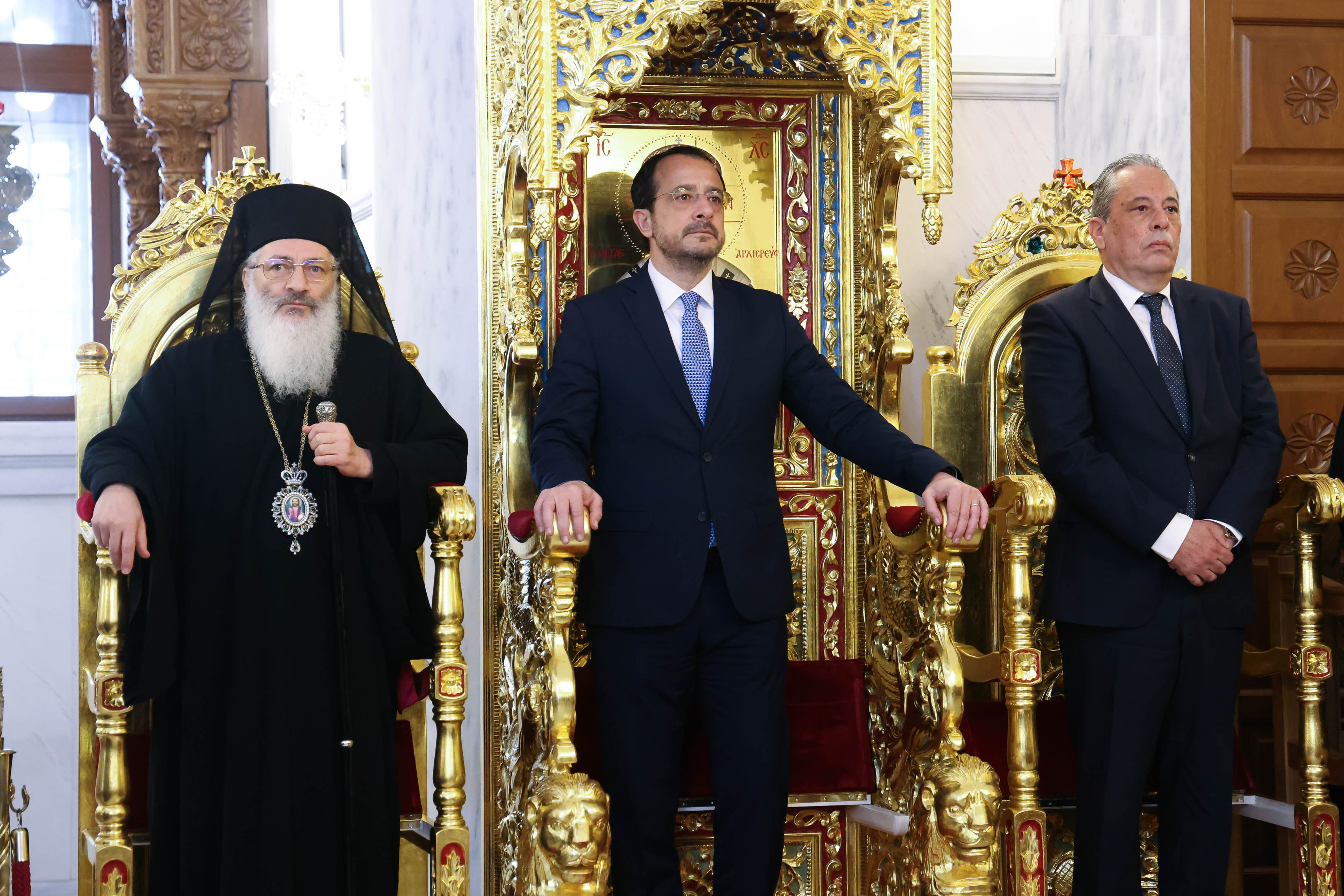Any lifting of sanctions on Syria “will not be permanent”, President Nikos Christodoulides said on Tuesday.
Speaking ahead of a church service held to mark the 70th anniversary of the founding of Eoka, he said the Cypriot government’s future greenlighting of a lifting of sanctions “will depend on the developments we see on individual issues”.
He said the factors on which the temporary lifting of sanctions will depend include that the Syrian government be “inclusive”, that there be an end to “the civilian population being victims on the basis of their ethnic or religious origin”, and that international law prevail.
On the matter of international law, he said particular importance must be placed on the law of the sea, and the 1982 United Nations convention on the law of the sea.
“These were included as a text … and these are the conditions for us to consider the further lifting of sanctions on Syria. A lifting of sanctions, which will not be permanent, will depend on the developments which we will see on these three issues,” he said.
Christodoulides’ placing of emphasis on the law of the sea comes after fears had initially arisen after the fall of Syria’s former dictator Bashar al-Assad that Syria and Turkey may delineate their exclusive economic zones (EEZ) without consulting Cyprus and thus encroach on the Republic of Cyprus’ area.
These fears arose after Syrian President Ahmed al-Sharaa and the Turkish government forged close ties in the first days after Assad’s ouster, with Turkish Transport Minister Abdulkadir Uraloglu making reference to such plans in mid-December.
He then walked his statements back on Christmas Eve, saying any such agreement would “take into account international law”.
In February, Cypriot Foreign Minister Constantinos Kombos visited Damascus to meet both al-Sharaa and his Foreign Minister Asaad al-Shaibani.
“The purpose of this visit was to express the Republic of Cyprus’ will to assist with a positive agenda, in a positive perspective for Syria after the fall of the Assad regime, both at a bilateral level and within the European Union,” he said at the time.
He added, “the relations are deep, historic, and our purpose is to see how we can assist in Syria’s transition back to the international community, as a full member, with the expected and required legitimacy.
“This, of course, presupposes that the basic principles of good neighbourliness, respect for territorial integrity, and the sovereignty of states exist.”






Click here to change your cookie preferences